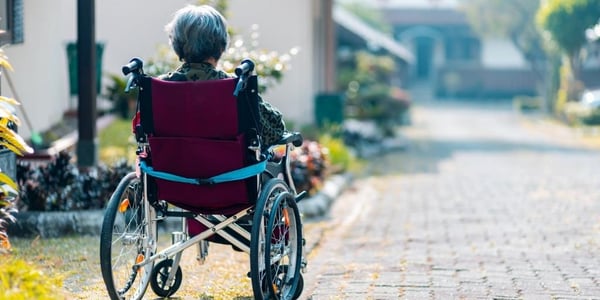Welcome to our annual roundup of the top 10 most popular blog posts from Living50+ in 2023! In this...
Downsizing? Here’s How to Evaluate a Homeowners Association
With the tragic collapse of the Champlain Towers South in Surfside, Florida, a startling fact emerged. The building's Homeowners Association (HOA) was aware of serious structural problems. Unfortunately, the association was not financially prepared to cover the existing funds raised over the years by HOA monthly dues. As a result, a special assessment was levied. Building residents were required to pay between $80,000 to $200,000 depending on unit size. The necessary building fixes were delayed in part because residents were reluctant to pay these high amounts.
Although it is an extreme example, the Champlain Towers South disaster brings into sharp focus the impact of a competently run HOA on the well-being of its residents. As a result, those considering purchasing a condo or other "Common Interest Community" type housing will benefit from learning about its HOA and how well it is run.
Purpose of an HOA
The primary purpose of an HOA is to appropriately maintain common areas and enforce the rules residents need to follow. In doing so, the financial value of individual condo properties is preserved, and residents receive the amenities they expect by living there.
An HOA is typically set up as a non-profit corporation by the property developer. Residents become members of the HOA when they buy a condo. Initially, the developer runs the HOA until about two-thirds or more of the units are sold. After that, control transitions to the residents, who elect a board of directors from among themselves.
What Does the HOA Board Do?

An HOA runs according to governing documents covering everything from restrictive covenants (rules residents must follow), bylaws for the HOA, and other guidelines and rules. The HOA board enforces the requirements outlined in these documents. Much of what the HOA board focuses on is regulating the use of common areas and their upkeep. These include building exteriors (including roofs), roads, sidewalks, pools, clubhouses, and other things residents share. The expenses for upkeep are intended to be covered by monthly association dues. The bylaws usually require a certain percentage of dues to be set aside for long-term maintenance of these things used in common.
Buyers Need to Research the HOA Before Buying
How an HOA is run significantly impacts the experience of condo living. A well-run HOA increases the chances residents will have a positive experience. Conversely, a poorly run association can diminish both the psychic and financial rewards for residents.
How should a prospective condo buyer research the property's HOA before making an offer?
- Read the Governing Documents: Ask the seller for the current version of the HOA's governing documents. As a resident, you will be required to know and follow the rules of the association. A real estate agent familiar with condominiums can assist in reviewing these documents.
- Learn About Monthly Fees and Special Assessments: Ask the seller about the trend in monthly fees over time. It can help you get an idea of how these costs rise over time. Also, ask if any special assessments are pending. Special assessments are levied on residents when the association lacks current funds for upkeep and improvements.
- Analyze the Financial Documents: Request and analyze the association's financials. In particular, check to see if the HOA sets aside enough money in its reserve fund to upkeep common areas. If you feel this analysis and other research is beyond your ability, consider hiring a real estate attorney specializing in your state's condominium laws. While this is an added expense, it may help you avoid costly headaches in the future.
- Meet with the Board of Directors President: Meeting with the board president or other knowledgeable board members will allow you to ask questions about any issues facing the property. It's also essential to learn about any conflicts between board members or between the board and residents. An adversarial environment could detract from your enjoyment of living in that community.
- Talk with Other Residents: Learning first-hand about the experiences of residents who are not on the board can provide clues about whether you would like living there.
- Find Out if the Developer Still Controls the Association: Sometimes, developers keep monthly fees artificially low to drive new property sales, which can cause the HOA to have an inadequate reserve fund when control transitions to the resident-elected board. That means monthly fees may jump after the transition.
- Look for Any Past or Current Legal Proceedings Involving the HOA: Whether brought by residents or state/local government, legal troubles can be a red flag. Again, as mentioned above, hiring a real estate attorney could help research such questions.
- Hire a home inspector: The Champlain Towers South collapse has heightened awareness of structural issues in residential buildings. However, even though most have less severe problems, it is still important to learn as much as possible about the physical condition of the place you are considering. Click here to learn more about the value of getting an inspection!
Some buyers skip researching the HOA in a rush to purchase their new home in the current competitive real estate market. Unfortunately, this prevents them from seeing problems that might impact their lifestyle as a resident. Therefore, it is better to educate yourself about the HOA and other vital factors before making an offer on your new condo.
Ready to take the next step? Check out our post, Avoiding Unpleasant Surprises: Pre-Purchase Condo Inspections!
Learn more about preparing to move on our Housing Resources page!







